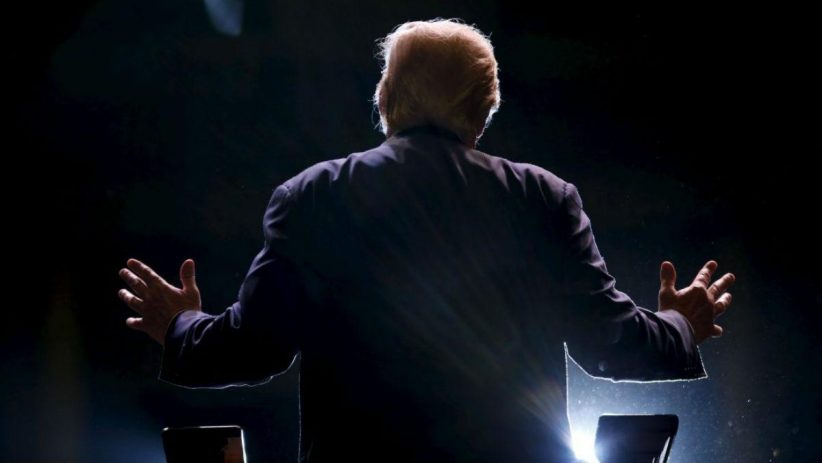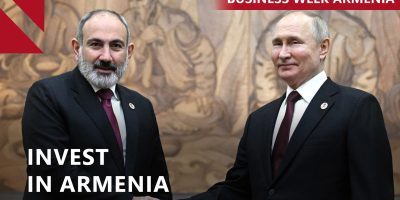US president-elect Donald Trump is generating a high fear factor in economy and politics. Petrostrategies, a Paris-based consulting firm analyses the risks connected to Trump’s election. The article was published in the company’s World Energy Weekly magazine (November 21 issue).
Donald Trump is generating a high fear factor. Apart from a handful of countries (including Russia, with a degree of caution) and far-right political parties (notably in Europe) that welcome his election as President of the US, the overriding sentiment is one of apprehension at the decisions that he is going to make. European leaders are asking him for “clarifications”. In other words, “are you going to transform the slogans you used to win the election into policies?”
Despite being very pro-Republican, the Wall Street Journal believes that this election could be “the biggest shock to the world economic system”. On this side of the Atlantic, the Financial Times, which is still reeling from the pro-Brexit vote to leave the EU, says this election is “a threat for the western democratic model”. An eminent US analyst believes that the boundaries have shifted: it is no longer Left versus Right, liberalism versus state interventionism, but rather national versus global, economic nationalism versus international liberalism, working classes versus elites, and peoples against establishments.
Economic fear
During his electoral campaign, Donald Trump backed a protectionist approach, pledging to pull the US out of international treaties such as the World Trade Organization (WTO) and NAFTA. In order to protect US jobs, he pledged to slap a 45% customs duty on products manufactured in China, and 35% on cars manufactured in Mexico, should Ford move its activities there, while also stating that he would force Apple to manufacture its iPhones in the US, rather than in China. But a Congress vote is required to pull out of such treaties. Although both houses are dominated by the Republicans, it is unlikely that they will back Trump in such a move. The US Republicans remain strongly attached to the principle of free trade and market liberalization. On the other hand, Donald Trump could seek to make changes to the NAFTA treaty, at the expense of Canada and Mexico. By enacting Executive Orders, he could also implement customs duties and impose restrictions aimed at imports.
If Donald Trump were to resort to protectionist measures, the countries affected would reply with retaliatory steps. The risk of a trade war could not be ruled out. A global recession could then follow. It would favor the rise to power of extreme or extremist forces, particularly in Europe. This would lead to a catastrophic scenario that does not even bear thinking about…
Political fear
According to many political pundits, the Donald Trump phenomenon would highlight a “political decadence” in the United States, and even a “national decline”. This theory was taken up the day after the November-8 election by the famous essayist Francis Fukuyama in “Foreign Affairs”. A British analyst says Trump’s victory results from the fact that the American masses have been “infantilized by reality television”. This idea is not new. Already in 1937, the Spanish philosopher José Ortega y Gasset spoke of the political “primitivism” of Americans. He also wrote that “everywhere the man of the masses” is emerging and that “if the serious flaws in him are not eradicated, they will lead to the annihilation of the West”. And we all know what happened next in Europe.
In foreign policy, from NATO to Japan and China, the list of new developments promised by Donald Trump is long. Trump has been conciliatory towards Russia, even obliging the Republican Party to scrap from its electoral platform the commitment to sell lethal weapons to Ukraine. He has proclaimed his admiration for Vladimir Putin, saying he is ready to do business with him. On the other hand, Trump had some very harsh things to say about Iran, describing as “disastrous” the nuclear agreement that he has promised to dismantle. This agreement was not approved by US Congress, but was approved by an Executive Order by Barack Obama. Trump does not even have to bother contesting the signature of his predecessor. He can use clauses from the agreement to accuse Iran of contravening its commitments, which could lead to sanctions be implemented again. The Iranian program for opening fields up oil and gas fields to foreign firms could be jeopardized.
Sociological fear
It is believed that the majority who voted for Trump are the ones who were left behind by globalization, the victims of the financial crises, the ones who feel despised by all elites. Hillary Clinton made the untimely remark that “half of Trump’s supporters are a basket of deplorables”. She thus appeared as the archetype of the Democratic or Republican elitists that take it in turns to take over in Washington, disdainful of the popular masses.
Whoever is surprised that the victims of social and economic inequalities should have voted to hoist a shady and extravagant billionaire to power must have forgotten that in a country like Italy, which is steeped in culture, a certain Sylvio Berlusconi (also a TV personality and billionaire, as well as an admirer of Putin) knew how to pull out similar stops to those used by Donald Trump in order to rise to power and he even holds the alltime record for longevity at this.
Trump is set to lead a deeply divided country. The outrageous comments he made in his election campaign and the virulence of the latter deepened the rifts that already existed and created new divisions. A number of these rifts, which are 150 years old and date back to the Civil War, were probably exacerbated by the presence of a black man in the White House. Southern Confederation flags were waved during Trump’s campaign meetings.
Energy and environment
Here, Trump’s program is summed up in two formulae: energy independence and refusal to make any climate commitments that could damage the “America first” goal. Trump can count on the support of Republican majorities in both houses of Congress. He is the first since Richard Nixon (196974) to brandish the US energy independence slogan. At the time, Nixon had supported the oil price hike in order to back US production. Today, Trump can count on the technical progress and efficiency gains of US producers. He has claimed that his country has enough oil reserves for almost three centuries and enough gas for two centuries. The US can overtake Saudi Arabia and Russia, to become the world’s leading oil producer, he said. He has criticized Obama’s anti-coal measures and has promised to dismantle them. But although coal was hit by Barack Obama’s tough measures, it is also (and above all) victim of the boom in low-cost natural gas, which is squeezing it out of the power sector. Between 2008 (the beginning of the “shale revolution”) and 2015, US coal production plummeted by one quarter. And coal’s share in US power production fell from 50% to one third.
Donald Trump’s main energy advisor, Kevin Cramer, the Republican representative for North Dakota, said that on the first 100 days at the White House, the new President must act to dismantle all regulations that could harm the US’ production of fossil fuels. A withdrawal is being advocated from the commitments made within the framework of the COP21 climate protection agreement. As for Trump, he stated that the Environment Protection Agency (EPA), which under Obama played an unprecedented key role, notably in negotiating its way past a hostile Congress, should concentrate solely on providing clean air and clean water for all Americans. This agency will probably be led by Myron Ebell, a climate skeptic like Trump himself, and his followers. For their part, since the election, US automakers have asked Trump to relax the engine efficiency standards that were enacted under Barack Obama. These norms are to be approved definitively by April 2018, so that they can come into force between 2022 and 2025.
Donald Trump has promised to facilitate the construction of oil and gas transport infrastructure, notably the Keystone XL and Dakota Access oil pipelines. He reportedly intends to open up to E&P protected federal lands and territories such as OCS Atlantic, the Arctic, the OCS of Alaska etc. If he takes such initiatives, he will no doubt attract stiff opposition from pro-environmental groups, as well as certain states, indigenous Americans and local authorities.
“America’s incredible energy potential remains untapped. It is a totally self-inflicted wound. Under my presidency, we will accomplish complete American energy independence,” he said. “We will become, and stay, totally independent of any need to import energy from the OPEC cartel or any nations hostile to our interests,” he said.
There too, as in the case of coal and gas, two potentially contradictory objectives have still to be reconciled: how to encourage a rise in US hydrocarbon production, on the one hand, while ensuring that this does not trigger a fall in prices that would discourage such growth, on the other. But in either case, the challenge for OPEC appears to be a daunting one.
Photo: Reuters
















